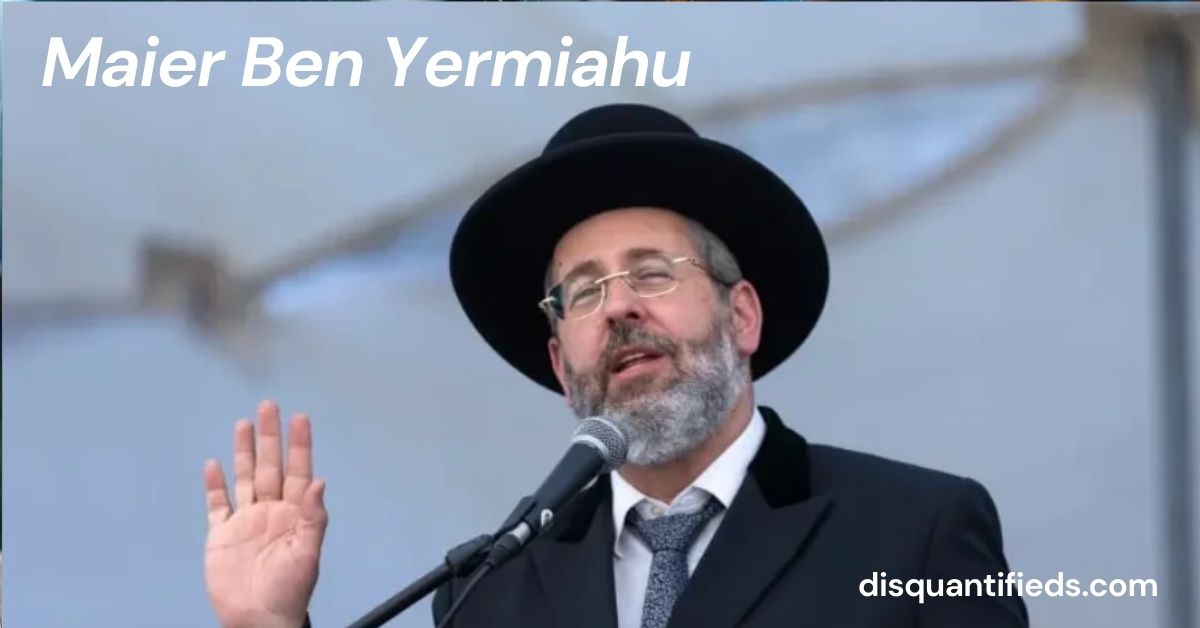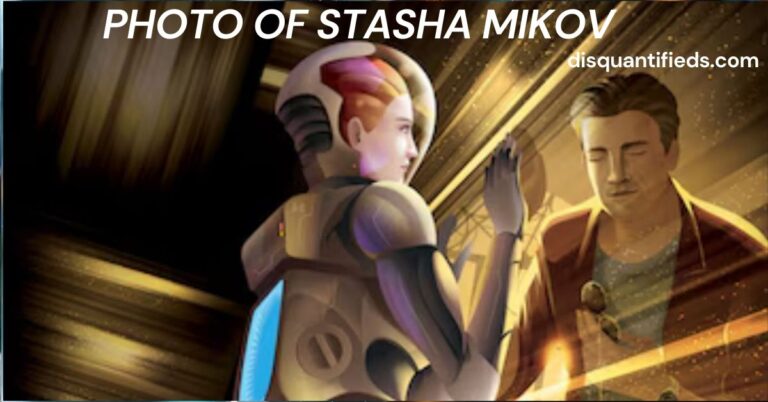Maier Ben Yermiahu: A Visionary Leader in Jewish Scholarship and Culture
Maier Ben Yermiahu is a name that stands out in the world of Jewish scholarship, cultural preservation, and educational innovation. His contributions have significantly shaped the landscape of Jewish thought, blending traditional religious teachings with modern innovations that resonate with both scholars and laypeople alike. His impact reaches beyond academia, influencing communities, religious practices, arts, and the way Jewish education is delivered across the globe.
This article will explore the life and work of Maier Ben Yermiahu in full detail, offering an in-depth analysis of his achievements, the principles that have guided his work, and the lasting influence he has had on Jewish scholarship and culture. The article will not only look at his past contributions but also reflect on how his work continues to inspire the present and future generations.
Who is Maier Ben Yermiahu?
Maier Ben Yermiahu is an influential Jewish scholar, educator, and cultural advocate. His academic work spans multiple disciplines within Jewish studies, including philosophy, history, religious practices, and ethics. His unique ability to integrate ancient Jewish texts with contemporary issues has made him a respected figure in Jewish intellectual circles. What sets Maier apart from many other scholars is his commitment to making Jewish scholarship accessible, relevant, and meaningful for all, regardless of their educational or religious background.
Maier’s approach to Jewish learning emphasizes that Jewish wisdom is not just something to be studied in isolation but should be applied to improve individuals and society. This principle has led him to engage in a wide variety of projects, ranging from educational initiatives to artistic endeavors, all aimed at ensuring that Jewish values and teachings continue to have a lasting impact.
Early Life and Inspirations
Maier Ben Yermiahu’s journey toward becoming a leading scholar and advocate for Jewish culture began at a young age. Born into a family with a deep-rooted commitment to Jewish tradition, he was immersed in religious studies from early childhood. His early education was centered around the Torah, Talmud, and other classical Jewish texts, which he studied diligently. However, Maier’s intellectual curiosity was not limited to the traditional texts; he was also deeply interested in how these ancient teachings could be applied to modern-day life.
His education was shaped by a combination of traditional rabbinic teachings and exposure to more progressive Jewish thinkers. As a young man, Maier was exposed to a wide range of intellectual ideas, from classical Jewish philosophy to modern approaches in secular fields like sociology, psychology, and political theory. This eclectic intellectual background helped him develop a unique perspective on Jewish scholarship, one that sought to marry tradition with innovation. It was clear from a young age that Maier was not content with simply preserving Jewish knowledge; he wanted to transform it to speak to the needs and challenges of contemporary society.
Maier’s mentors during his youth were influential rabbis and scholars who not only taught him the fundamentals of Jewish texts but also encouraged him to think critically about these teachings. They guided him in exploring the depth of Jewish law, ethics, and spirituality, but they also emphasized the importance of intellectual independence and personal exploration.
Contributions to Jewish Scholarship
Maier Ben Yermiahu’s academic career is defined by his ability to bridge the gap between ancient Jewish texts and modern intellectual trends. His scholarship covers a broad spectrum, from Jewish philosophy and theology to history and law. His writings are characterized by a deep reverence for Jewish tradition, combined with a willingness to engage with contemporary ideas.
Jewish Philosophy and Modern Thought
One of the most significant aspects of Maier Ben Yermiahu’s contributions is his work in Jewish philosophy. Through his writings, Maier has explored how Jewish philosophical concepts can be applied to the challenges faced by Jews in the modern world. His work has often centered on the concept of moral responsibility, drawing connections between Jewish ethical teachings and modern moral philosophy.
Maier’s academic approach is not merely an exercise in intellectual analysis; it is a practical exploration of how Jewish ideas can inform and shape modern life. His works address contemporary issues such as the nature of justice, the role of community in individual development, and the ethical obligations that individuals and societies have to one another.
Maier has also been instrumental in demonstrating how Jewish philosophy can engage with other philosophical traditions. For example, in his research on the intersection of Jewish thought and existentialism, Maier explores how Jewish thinkers like Martin Buber and Franz Rosenzweig addressed existential questions in the context of their Jewish faith. He argues that Jewish philosophy offers profound insights into human existence, particularly when it comes to questions of identity, meaning, and suffering.
Jewish History and Cultural Preservation
In addition to his philosophical work, Maier Ben Yermiahu has made significant contributions to the field of Jewish history. His research in this area has focused on how Jewish communities have evolved over time and how their cultural and religious traditions have adapted to changing social and political environments. Maier’s work highlights the resilience of Jewish culture and the ways in which Jewish communities have preserved their identity throughout history.
A significant part of Maier’s historical scholarship involves the study of Jewish diaspora communities. His work on Jewish communities outside of Israel, particularly in Europe and North America, offers a nuanced understanding of how Jews have maintained their religious and cultural practices while adapting to their new surroundings. Maier’s historical work also emphasizes the importance of memory and continuity, highlighting the role of education and communal life in the preservation of Jewish culture.
Jewish Ethics and Law
Maier Ben Yermiahu is widely recognized for his work on Jewish ethics and law. His scholarly work often focuses on how Jewish law can be interpreted in ways that are relevant to modern life. One of the guiding principles in Maier’s approach to Jewish law is the belief that halakha (Jewish law) is not a static set of rules but rather a dynamic system that can evolve to address the needs of contemporary society.
In his writings on Jewish law, Maier emphasizes the importance of flexibility and adaptability. He believes that Jewish law must be understood as part of a broader moral and ethical framework, one that takes into account the realities of modern life while still preserving its core values. His work on this subject often involves reinterpreting ancient texts to offer new insights into the practice of Jewish law in today’s world.
Maier Ben Yermiahu’s Role in Jewish Education
Perhaps one of Maier Ben Yermiahu’s most enduring contributions to Jewish life has been his work in Jewish education. He has been a tireless advocate for expanding access to Jewish learning, ensuring that people of all ages and backgrounds have the opportunity to engage with Jewish texts and traditions. His approach to Jewish education is grounded in the belief that learning should be an ongoing process and that education should not be confined to the classroom.
Maier has been involved in developing educational programs that make Jewish learning more interactive, inclusive, and relevant. Through his initiatives, he has worked to bring Jewish education to a wider audience, including children, young adults, and even those with little prior exposure to Jewish learning. His goal has always been to create learning environments that encourage critical thinking, intellectual engagement, and personal growth.
Innovative Teaching Methods
Maier Ben Yermiahu has introduced innovative teaching methods that challenge traditional approaches to Jewish education. For example, he has been a proponent of using technology in the classroom to make Jewish learning more accessible and engaging. This includes the use of digital platforms, interactive learning tools, and multimedia resources that bring Jewish texts to life in new and exciting ways.
One of the cornerstones of Maier’s educational philosophy is the idea that Jewish learning should not be a passive activity but an active and participatory process. His teaching methods emphasize discussion, debate, and collaboration, allowing students to engage with one another and with the texts in a way that fosters deeper understanding and connection.
Lifelong Learning and Accessibility
Maier also emphasizes the importance of lifelong learning in the Jewish tradition. He believes that Jewish education should not stop after childhood or after formal schooling, but should continue throughout a person’s life. To this end, he has developed programs aimed at adults who wish to continue their Jewish education, whether through study groups, online courses, or community-based initiatives.
His work in this area reflects his belief that Jewish learning is not just about acquiring knowledge, but about cultivating a deeper connection to one’s heritage and faith. By making Jewish education more accessible to people at all stages of life, Maier has helped to ensure that Jewish traditions remain vibrant and meaningful for future generations.
Maier Ben Yermiahu’s Advocacy for Jewish Culture and Arts
In addition to his scholarly and educational work, Maier Ben Yermiahu has been a passionate advocate for the arts and culture. He has supported the creation of Jewish art, music, and literature, and has worked to ensure that these cultural expressions remain central to Jewish life. For Maier, the arts are a vital means of preserving and transmitting Jewish values, and he has devoted significant time and effort to supporting Jewish artists and cultural initiatives.
Maier has played a key role in bringing Jewish artists together, helping to create spaces where Jewish culture can be celebrated and shared. Through his work, he has helped to foster a renaissance in Jewish arts, ensuring that Jewish creativity continues to thrive in the modern world.
Supporting Jewish Artists and Intellectuals
Maier has been particularly active in supporting Jewish writers, musicians, and visual artists. He believes that the work of Jewish artists is an essential part of preserving Jewish culture, as it allows Jewish values and experiences to be expressed in ways that are deeply personal and creative. By supporting these artists, Maier has helped to ensure that Jewish culture remains dynamic, relevant, and full of life.
FAQs about Maier Ben Yermiahu
Who is Maier Ben Yermiahu?
Maier Ben Yermiahu is a renowned Jewish scholar, educator, and cultural advocate who has made significant contributions to Jewish scholarship, education, and cultural preservation.
What are Maier Ben Yermiahu’s main areas of expertise?
Maier is an expert in Jewish philosophy, history, law, ethics, and education. He has worked to make Jewish learning more accessible and relevant to modern life.
How has Maier Ben Yermiahu influenced Jewish education?
Maier has introduced innovative teaching methods and educational programs that emphasize critical thinking, discussion, and lifelong learning, making Jewish education more engaging and accessible to people of all ages.
What is Maier Ben Yermiahu’s approach to Jewish law?
Maier believes that Jewish law (halakha) should be dynamic and adaptable, able to address contemporary challenges while preserving core Jewish values.
What impact has Maier Ben Yermiahu had on Jewish culture?
Maier has been a strong advocate for Jewish arts and culture, supporting Jewish artists and fostering a renaissance of Jewish creativity.
Conclusion
Maier Ben Yermiahu’s life and work are a testament to the power of innovation and dedication in preserving and enhancing Jewish culture and scholarship. His contributions have enriched Jewish thought, and his legacy continues to inspire new generations of scholars, educators, and community leaders. Through his work, Maier has demonstrated that Jewish tradition can thrive in the modern world, adapting to new challenges while staying grounded in timeless values.






